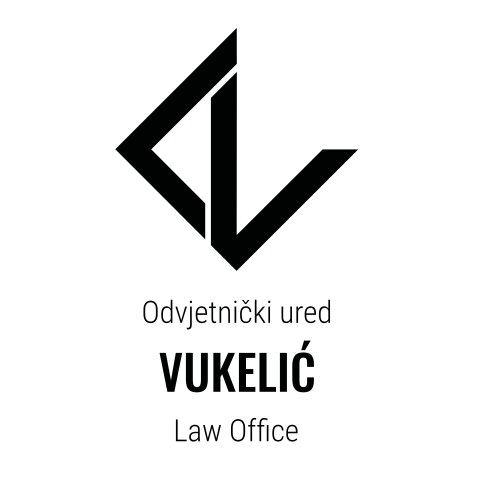Best Housing, Construction & Development Lawyers in Croatia
Share your needs with us, get contacted by law firms.
Free. Takes 2 min.
Free Guide to Hiring a Real Estate Lawyer
Or refine your search by selecting a city:
List of the best lawyers in Croatia
About Housing, Construction & Development Law in Croatia
Housing, construction, and development law in Croatia governs the various facets of real estate and construction projects from acquisition to development, enforcement of property rights, and resolution of disputes. This area of law is influenced by European regulations as well as local statutes, making it comprehensive yet intricate. The legal framework encompasses building permits, zoning laws, property transactions, and contractual obligations between landlords, tenants, and developers. Understanding these laws is crucial for stakeholders engaged in real estate and construction activities within Croatia.
Why You May Need a Lawyer
Engaging a lawyer in the field of housing, construction, and development can be essential in several situations:
- Property Transactions: Buying or selling residential or commercial property can involve complex legal transactions. A lawyer ensures all legal aspects are handled correctly.
- Building Permits and Zoning Issues: Obtaining the proper permits and adhering to zoning regulations are critical to avoid legal issues. A lawyer can navigate these processes.
- Contract Disputes: Whether with contractors, suppliers, or tenants, disputes often arise that require skilled mediation or legal intervention.
- Ownership Disputes: Legal counsel can help resolve issues involving property inheritance, boundary disputes, or title clarity.
- Regulatory Compliance: New developments must comply with local environmental and safety regulations, which a lawyer can help ensure.
Local Laws Overview
Croatia's real estate and construction industry is governed by various laws and regulations. Key aspects include:
- Building Permits: Required for the construction of new buildings or the refurbishment of existing structures, ensuring compliance with local standards.
- Land Use and Zoning Plans: Govern the type and scope of development allowed in specific areas, impacting design and feasibility of projects.
- Cadaster and Land Registry: Legal systems that document property rights and boundaries, crucial for proving ownership and executing transactions.
- Environmental Protection Laws: Regulations to safeguard the environment during development activities, vital for sustainable projects.
- Residential and Commercial Tenancy Laws: Protect the rights of both landlords and tenants, outlining lease agreements and resolution of disputes.
Frequently Asked Questions
What are the steps involved in purchasing a property in Croatia?
The process includes performing due diligence, signing a pre-contract, securing financing, paying necessary taxes, and transferring the title at the land registry office.
How can I obtain a building permit in Croatia?
You must submit a detailed project plan to the relevant municipal office which reviews it for compliance with building and zoning regulations. Approval is required before construction can begin.
What is the average duration for obtaining a building permit?
The duration varies, but it typically takes several months from application submission to permit issuance, depending on project complexity and compliance with regulations.
Can foreign nationals purchase property in Croatia?
Yes, EU citizens can purchase property under the same conditions as Croatian citizens. Non-EU citizens may face restrictions and might require approval from the Ministry of Justice.
What should I do if a neighbor's construction infringes on my property?
You should consult with a lawyer to discuss potential resolutions, which may involve negotiating an agreement, mediation, or filing a legal complaint.
How are property disputes resolved in Croatia?
Disputes may be resolved through negotiation, mediation, or legal proceedings in court. Consulting with a lawyer can determine the most appropriate course of action.
What taxes are applicable when purchasing property?
The real estate transfer tax is generally 3% of the property value, but VAT may apply in certain circumstances, particularly for new constructions.
How long are residential leases typically in Croatia?
Residential leases are usually negotiated between parties but commonly last for one year, with the possibility of renewal or conversion to a long-term lease.
What is the role of a notary in property transactions?
A notary ensures that property transactions are legally secure, authenticating the signing of contracts and submission of necessary documents to the land registry.
Are there any incentives for green building practices?
Croatia offers various incentives, including tax deductions and grants, to promote environmentally sustainable building practices and energy-efficient upgrades.
Additional Resources
For more information or assistance in housing, construction, and development matters, consider reaching out to:
- Ministry of Construction and Physical Planning: Offers regulatory guidance and resources on building standards.
- Croatian Chamber of Commerce: Provides information related to the construction industry's legal and business environment.
- Local Municipal Offices: For specific questions about building permits and zoning laws in your area.
- Croatian Bar Association: Can help you find authorized legal representatives specialized in real estate and construction law.
Next Steps
If you need legal assistance in the field of housing, construction, and development, consider the following steps:
- Research and select a qualified lawyer specialized in Croatian housing and construction law.
- Prepare all relevant documents and information regarding your situation or project for the initial consultation.
- Discuss your objectives, potential legal risks, and the scope of services needed during the consultation.
- Evaluate the costs and fees associated with legal representation before proceeding.
- Engage the lawyer to provide you with ongoing legal advice and representation as needed.
Lawzana helps you find the best lawyers and law firms in Croatia through a curated and pre-screened list of qualified legal professionals. Our platform offers rankings and detailed profiles of attorneys and law firms, allowing you to compare based on practice areas, including Housing, Construction & Development, experience, and client feedback.
Each profile includes a description of the firm's areas of practice, client reviews, team members and partners, year of establishment, spoken languages, office locations, contact information, social media presence, and any published articles or resources. Most firms on our platform speak English and are experienced in both local and international legal matters.
Get a quote from top-rated law firms in Croatia — quickly, securely, and without unnecessary hassle.
Disclaimer:
The information provided on this page is for general informational purposes only and does not constitute legal advice. While we strive to ensure the accuracy and relevance of the content, legal information may change over time, and interpretations of the law can vary. You should always consult with a qualified legal professional for advice specific to your situation.
We disclaim all liability for actions taken or not taken based on the content of this page. If you believe any information is incorrect or outdated, please contact us, and we will review and update it where appropriate.
Browse housing, construction & development law firms by city in Croatia
Refine your search by selecting a city.

















